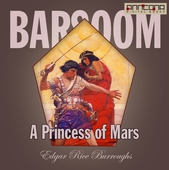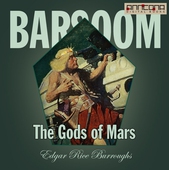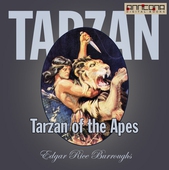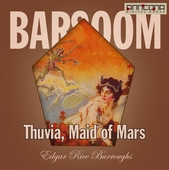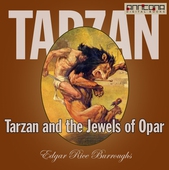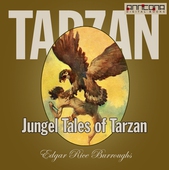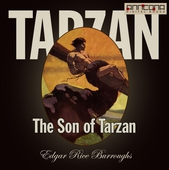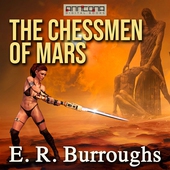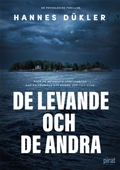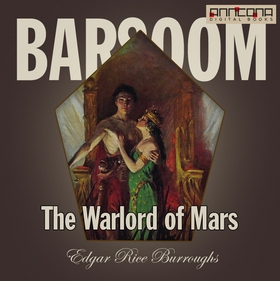
Lägg till önskelistan
Gratis smakprov
- Spara till biblioteket
- Lyssna på smakprov
The Warlord of Mars (The Barsoom series #3) ljudbok
Pris
65 kr
The Warlord of Mars is a science fiction novel written by Edgar Rice Burroughs, the third of his famous Barsoom series. Burroughs began writing it in June, 1913, going through five working titles; Yellow Men of Barsoom, The Fighting Prince of Mars, Across Savage Mars, The Prince of Helium, and The War Lord of Mars.
The finished story was first published in All-Story Magazine as a four-part serial in the issues for December, 1913-March, 1914. It was later published as a complete novel by A. C...
Ljudbok
65 kr
Pris
E-Bok
19 kr
Pris
Förlag
Anncona Media
Utgiven
10 Mars 2014
Längd
6:02
Genrer
Science Fiction, Romaner, Science Fiction & Fantasy, Skönlitteratur
Serie
The Barsoom series
Del i serie
3
Språk
English
Format
mp3
Kopieringsskydd
Vattenmärkt
ISBN
9789176050897
The Warlord of Mars is a science fiction novel written by Edgar Rice Burroughs, the third of his famous Barsoom series. Burroughs began writing it in June, 1913, going through five working titles; Yellow Men of Barsoom, The Fighting Prince of Mars, Across Savage Mars, The Prince of Helium, and The War Lord of Mars.
The finished story was first published in All-Story Magazine as a four-part serial in the issues for December, 1913-March, 1914. It was later published as a complete novel by A. C. McClurg in September, 1919.
This novel continues where the previous one in the series, The Gods of Mars abruptly ended. At the end of the previous book, John Carter's wife, the princess Dejah Thoris, is imprisoned in the Temple of the Sun by the vile pretender goddess Issus. It is said one has to wait an entire Barsoomian year before the room the prisoner is in revolves back to the entrance.
Barsoom is a fictional representation of the planet Mars created by American pulp fiction author Edgar Rice Burroughs. The first Barsoom tale was serialized as Under the Moons of Mars in 1912, and published as a novel as A Princess of Mars in 1917. Ten sequels followed over the next three decades, further extending his vision of Barsoom and adding other characters.
The world of Barsoom is a romantic vision of a dying Mars. Writers and science popularizers like Camille Flammarion, who was convinced that Mars was at a later stage of evolution than Earth and therefore much more dry, took the ideas further and published books like Les Terres du Ciel (1884), which contained illustrations of a planet covered with canals. Burroughs gives credits to him in his writings, and goes as far as to say that he based his vision of Mars on that of Flammarion. John Carter is transported to Mars in a way described by Flammarion in Urania (1889), where a man from earth is transported to Mars as an astral body where he wakes up to a lower gravity, two moons, strange plants and animals and several races of advanced humans. In The Plurality of Inhabited Worlds and Lumen, he further speculates about plant people and other creaturs on far away planets, elements that would later appear in the Barsoom stories.
The Barsoom series, where John Carter in the late 1800s is mysteriously transported from Earth to a Mars suffering from dwindling resources, has been cited by many well-known science fiction writers as having inspired and motivated them in their youth, as well as by key scientists involved in both space exploration and the search for extraterrestrial life. Elements of the books have been adapted by many writers, in novels, short stories, comics, television and film.
Edgar Rice Burroughs (1875-1950) was an American author, best known for his creation of the jungle hero Tarzan and the heroic Mars adventurer John Carter, although he produced works in many genres.

